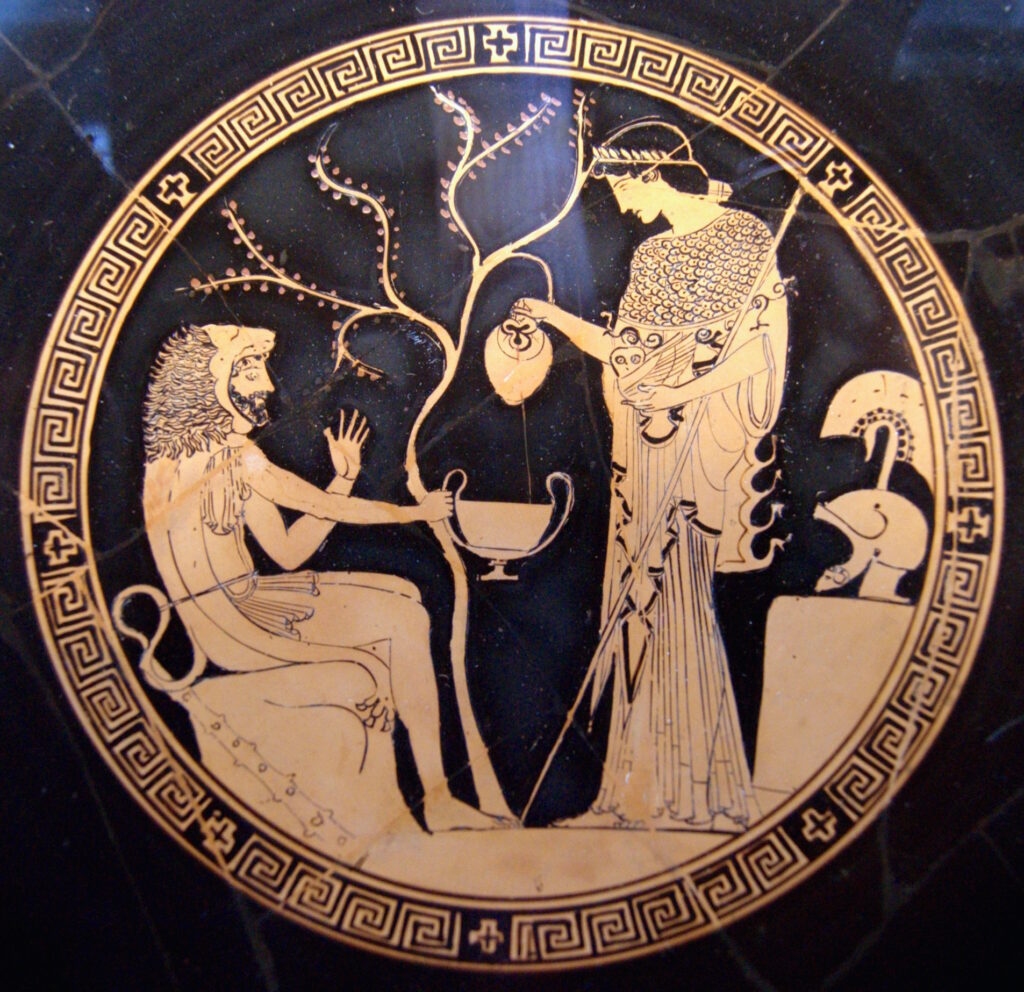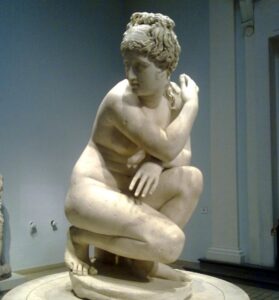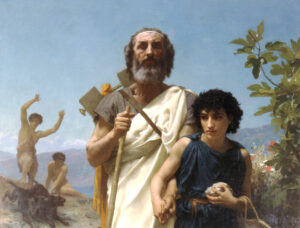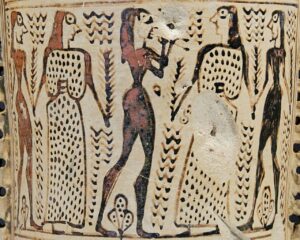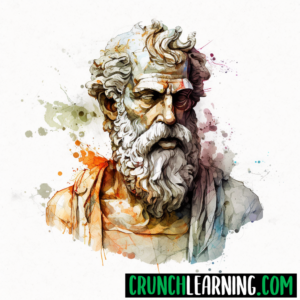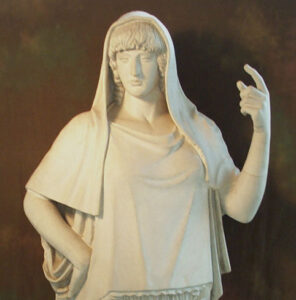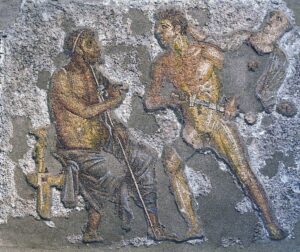Athena was one of the main goddesses in ancient Greek mythology. In fact, she was one of the twelve Olympians in ancient Greece and was considered the goddess of wisdom, war, and crafts. This powerful goddess was worshipped by the ancient Greeks for her intelligence, bravery, and her role in their daily lives as a protector of cities and a source of inspiration for artists and craftsmen.
Origins and Family
Athena was supposedly born fully grown and armored from the head of Zeus and was considered to be one of the most powerful and respected gods in ancient Greece. She was the daughter of Zeus and Metis and was the sister of Artemis and Apollo.
Despite her powerful nature, Athena was known for her wisdom and her level-headedness, which made her a popular figure among the ancient Greeks. She was often depicted as a wise and compassionate goddess who used her intelligence and her skill in battle to protect the people of Greece.
She was considered the protector of Athens, which was named in her honor. She was often depicted wearing armor and carrying a shield and spear.
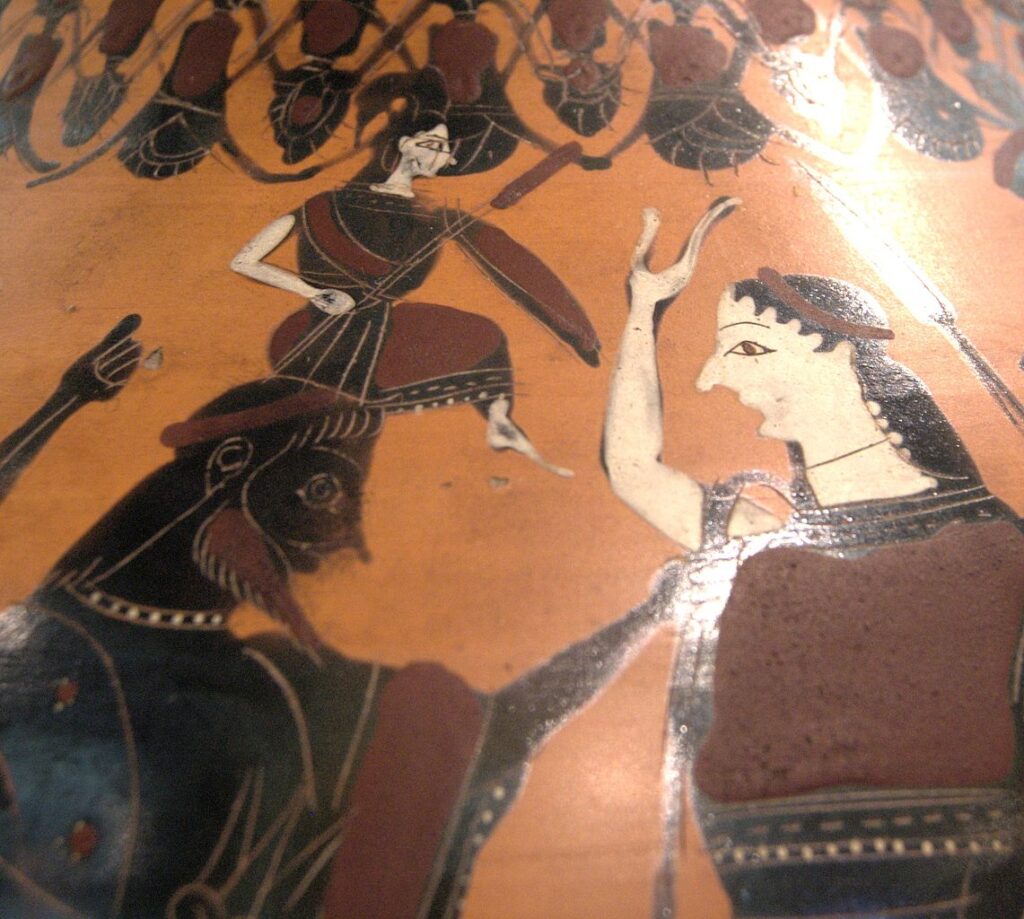
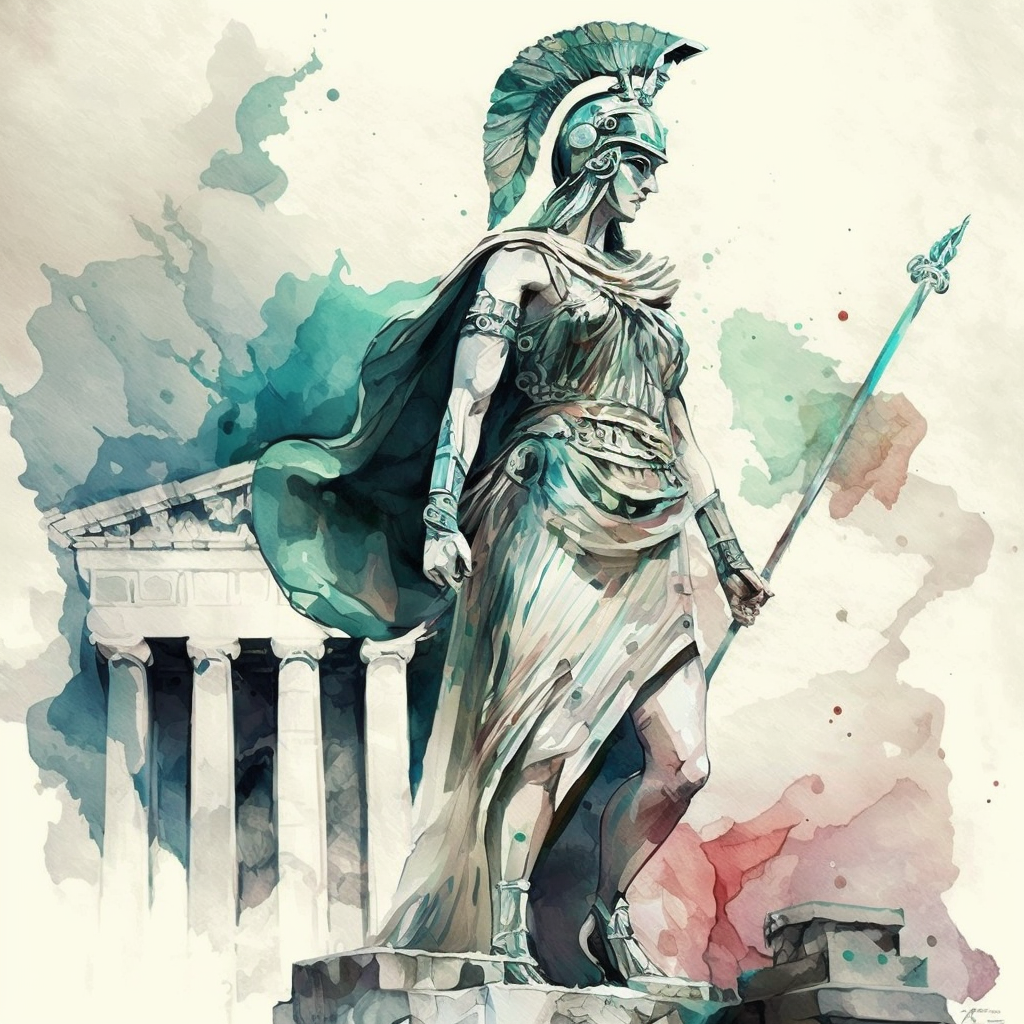
Athena’s Role in Ancient Greek Mythology
In ancient Greek mythology, Athena was known for her intelligence and strategic thinking. She was often depicted as a virgin goddess, and her symbol was the owl, which represented wisdom. As stated above, she was also associated with the city of Athens and was said to have helped the city become a powerful center of learning and civilization.
One of the most famous stories about her is the contest between her and the god of the sea, Poseidon, for the city of Athens. She won the contest by offering the city an olive tree, which was seen as a symbol of peace and prosperity. As a result, the city was named after her and the Parthenon, a temple dedicated to her, was built on the Acropolis of Athens.
Furthermore, she was also known for her role in the Trojan War. She was said to have aided the Greeks in the war, including helping Odysseus in his journey home. For instance, she was often depicted as a wise and compassionate figure who helped heroes to overcome obstacles and to achieve their goals.
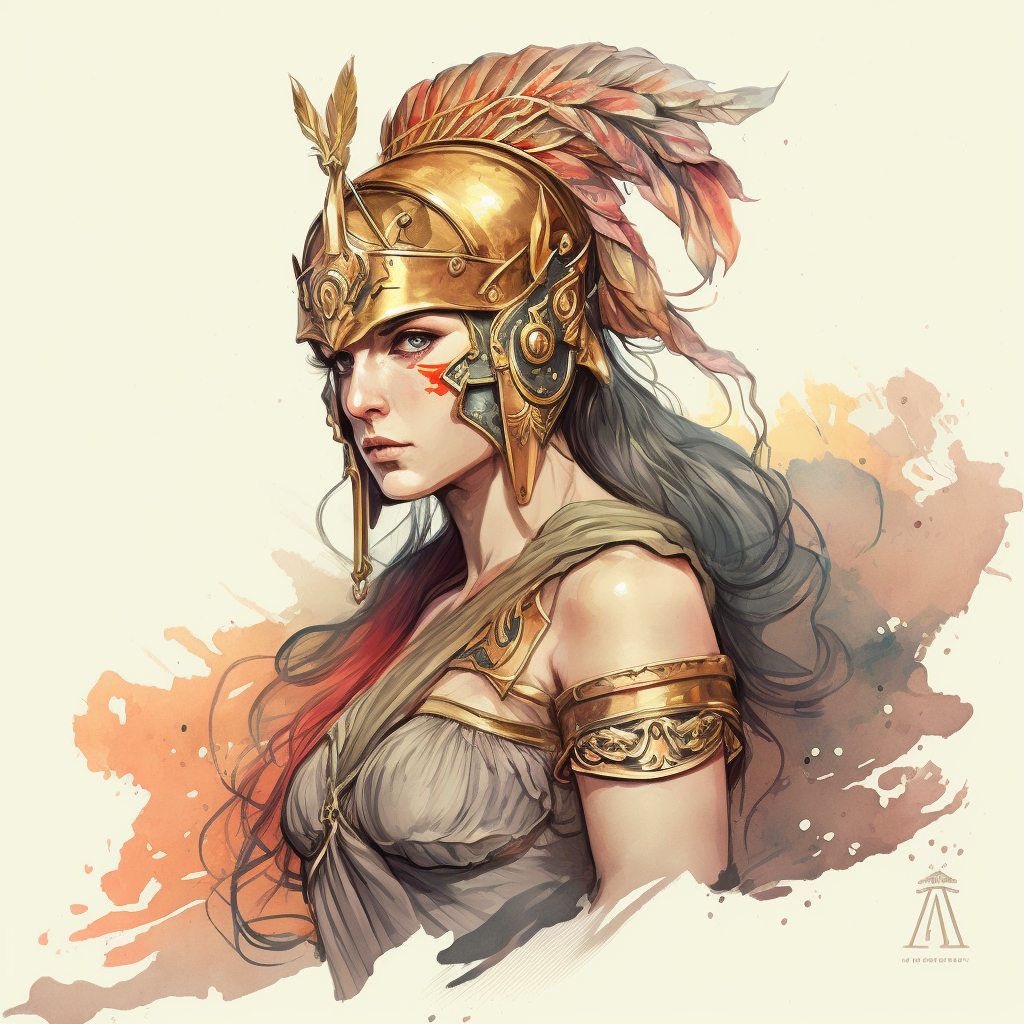
Ancient Greek Worship of Athena
The Ancient Greeks held Athena in high regard and built many temples and shrines in her honor. They made offerings to her in the form of food, wine, and animals, which were left at the feet of statues of the goddess or used in religious rituals.
She was also honored with a number of festivals and rituals, including the Panathenaic Festival, which was held in her honor each year. During this festival, the people of Ancient Greece would offer up prayers and make offerings to Athena in order to honor her wisdom and bravery and to seek her protection and guidance.
Significance of Athena
In terms of significance, Athena represents wisdom, intelligence, and strategic thinking. She is often seen as a role model for young women and a symbol of the importance of education and civilization. She played an important part in ancient Greek culture, especially in relation to the city of Athens, which was named in her honor. Her legacy can still be seen in the many references to her in literature, art, and popular culture.

